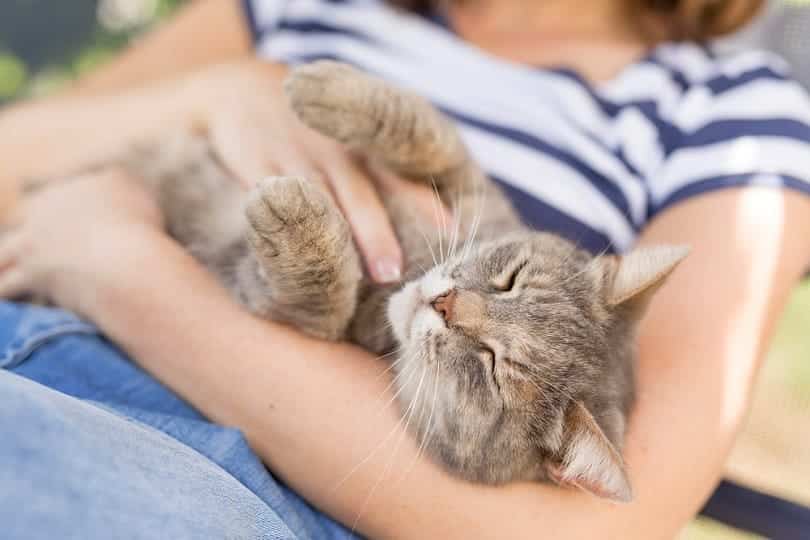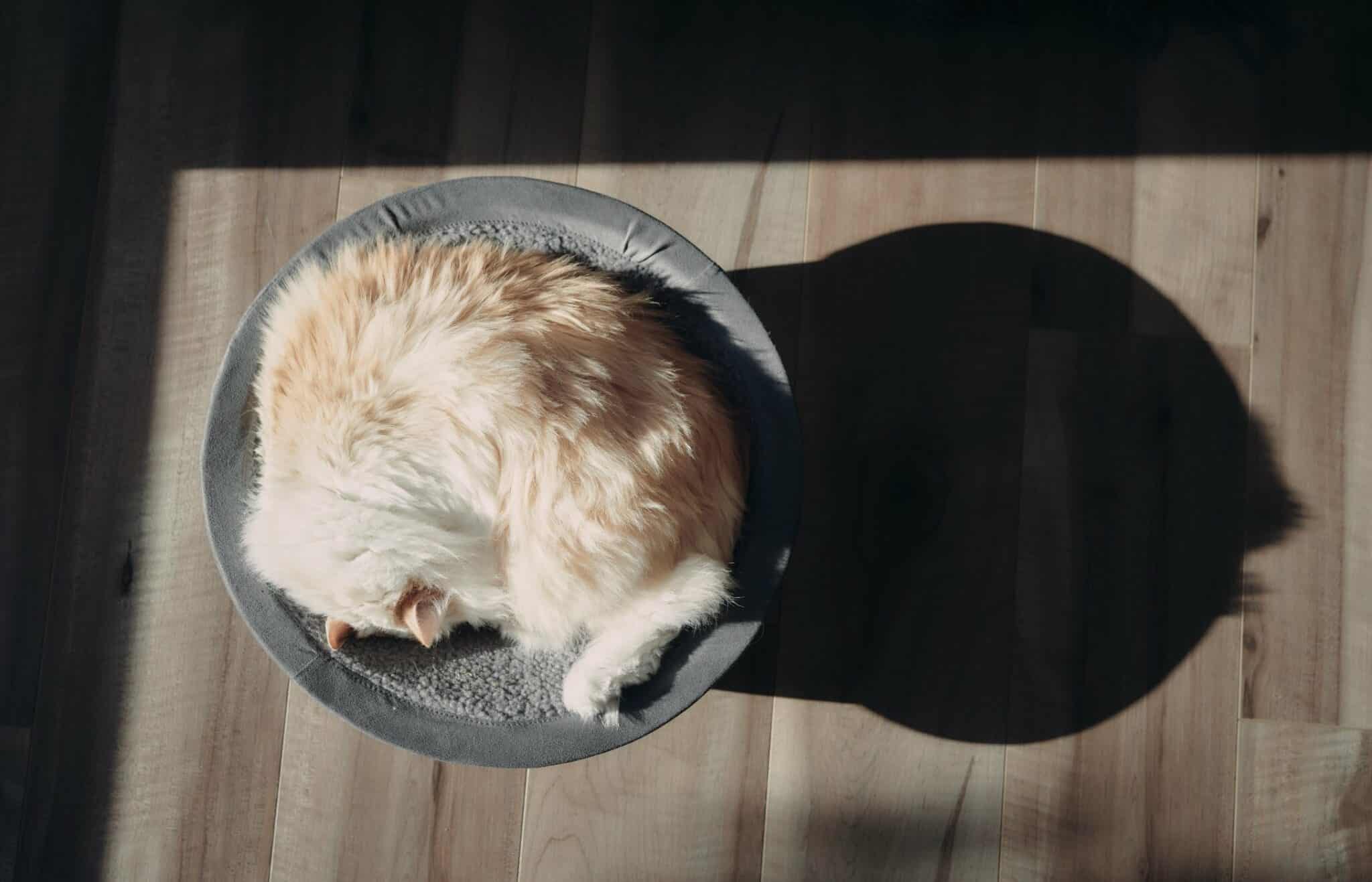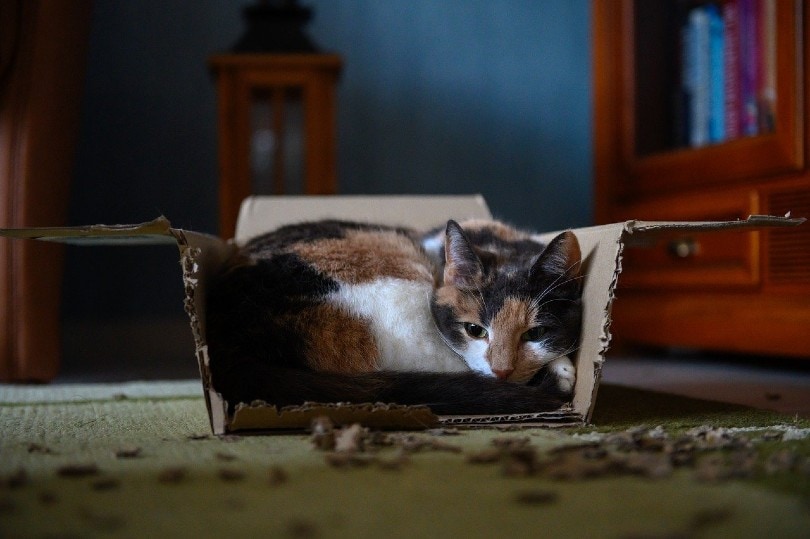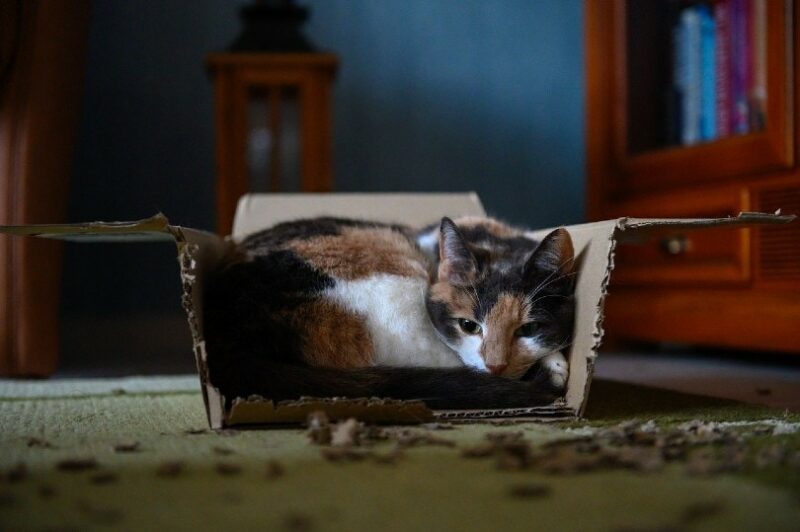As a proud cat owner, you certainly only want what’s best for your precious little pet. When the temperature outside drops, you probably pull out your blankets and sweaters to keep warm. But what about your cat? If you’re wondering how to tell if your cat is cold or not, we’re here to help!
To ensure you can take great care of your furry feline, here are the top signs to look for that indicate if your cat is cold:
How to Tell If a Cat Is Cold – The 5 Signs to Look For
1. They’re Cold to the Touch
If your cat’s ears, paws, and the end of the tail feel cold, they probably are uncomfortably chilly since these parts of the body lose heat first when the temperature drops.

2. They’re Hanging Out by the Radiator
If your cat is often found sitting or lying near a warm radiator or another heat source, it’s a sign that they’re cold. By positioning themself near heat, they’re attempting to boost their body temperature and feel more comfortable.
3. They’re Curled Up in a Ball
When a cat curls up in a ball with its feet tucked under its body, the animal can preserve body heat. While this position may be how you often find your cat sleeping, it could also be a sign that they’re cold.

4. They Want to Cuddle
When young kittens are chilly, they huddle together to warm up. If your cat feels cold, they may want to jump in your lap and cuddle to keep warm.
5. Lethargy
As their core temperature starts to drop cats may become lethargic and difficult to rouse from sleeping. They may also appear un-coordinated if you do get them up and about.
How to Warm Up a Cold Cat
When you discover that your cat is cold, surely you want to help your companion warm up. There are several ways to warm up a cold cat that we’ve listed below.
- Buy a Thermal Cat Bed: You can warm up a chilly kitty by giving them a heating pad or thermal cat bed to hang out in. This type of bed reflects heat to keep your cat warm and comfy.
- Put a Sweater on Your Cat: If your cat tolerates wearing kitty clothes, buy them a sweet little cat sweater to wear when they’re cold. Not only will your cat be toasty warm in a sweater, but they’ll also be fashion-forward and the most stylish feline on the block!
- Cuddle With Your Kitty: A sure-fire way to warm up a cat is by simply cuddling them. Pick your little darling up and tuck them in by your side or on your lap to warm them up quickly. Cuddling is also a great bonding experience for you both, so enjoy it while it happens.
- Place Their Bed by a Heat Source: A good way to warm your cat up when they’re cold is to place their bed by a radiator or another heat source. If you have a fireplace, toss the cat bed down in front of it so your cat can warm themself by the glowing heat. Just be sure not to put it too close!
Signs of Hypothermia in Cats
The normal body temperature for a cat is between 101.0°F–102.5°F. If your cat is exposed to cold temperatures for a long period and their body temperature drops below 100°F, they may suffer from hypothermia, even with all that fur of theirs. The thermoneutral zone for cats is higher than for humans. So they tend to suffer from the effects of cold more easily.
Hypothermia in cats can be very serious. As a cat’s body temperature drops, the heart rate and other body activities slow down. There are some signs to watch for that may indicate your cat is suffering from hypothermia, which are:
- Decreased heart rate
- Slowed breathing
- Lethargy
- Drowsiness
- Cold to the touch
- Pale or gray gums
If you suspect your cat has hypothermia, contact your veterinarian as soon as possible. Your vet may ask you to bring your cat in for an exam and treatment. In the meantime, move your cat to a warm location and towel dry them if they’re wet.
If the vet determines your cat has hypothermia, the treatment typically consists of elevating the body temperature back to a normal level. This is usually done by placing the cat in a warm room and giving them warmed IV fluids. Fortunately, the prognosis is good for most cats with mild hypothermia.
Conclusion
There are some tell-tale signs to watch for that indicate a cat is cold. If you discover your pet cat is chilly, follow the tips above to warm them up so they feel more comfortable. Don’t ever forget that your cat depends on you to tend to their needs, so pamper your little buddy to make them feel safe, loved, and—most importantly—warm.
Featured Image Credit: karlins_u, Pixabay












